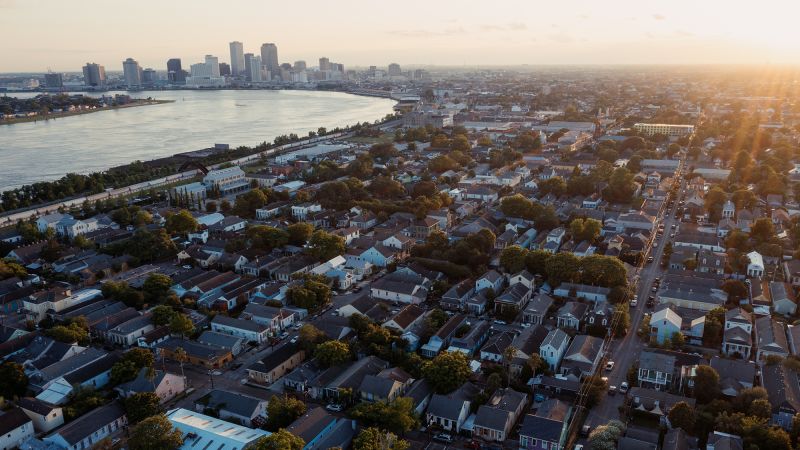The home insurance market is crumbling in New Orleans, leaving Alfredo Herrera with few options for coverage — and skyrocketing insurance premiums.
Herrera, 35, works in finance for a local bank. He bought his 900-square-foot home in New Orleans’ Mid-City neighborhood in 2020 for $270,000, and lives there with his partner.
In 2022, he paid $1,600 a year for home insurance. But last July, his insurer canceled his coverage, saying it was leaving Louisiana.
In the past, acquiring or keeping homeowners’ insurance didn’t present much of a problem.
But as climate change increases the frequency and severity of extreme weather, insurers — especially those in areas most impacted by floods and fires — are raising their premiums, or pulling out altogether, impacting the affordability and availability of home and fire insurance.



I like when people think outside of the box
but let’s think about that concept.
you , myself, and 22 others live in a high risk flood zone. the insurance companies won’t insure us because of the high risk.
if we (the 24) try to insure ourselves, there is no way to gather enough premiums to offset the losses.
think about it, the insurance companies will insure LARGE numbers of homes. then use the premiums to pay for losses on a few of those homes. so when someones house burns down or gets destroyed by a flood there is money in the bank to cover the loss. but since it is a smaller number of people putting in premiums, there is a smaller amount of money in the pot to cover the loss.
all the homes are in a high risk flood zone, it wouldn’t take much for all the homes (in the co-op) to be destroyed in the same flood to wipe out the pile of cash and not have a way to rebuild.
i like your idea but the end result makes in a solution that just won’t work. sorry.